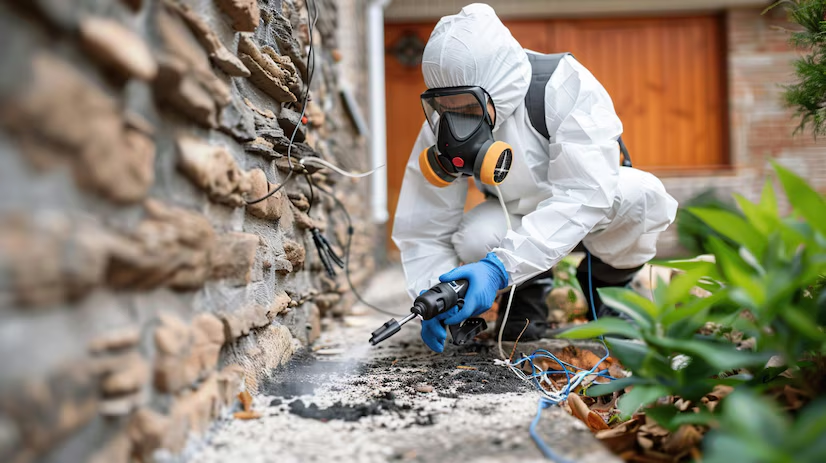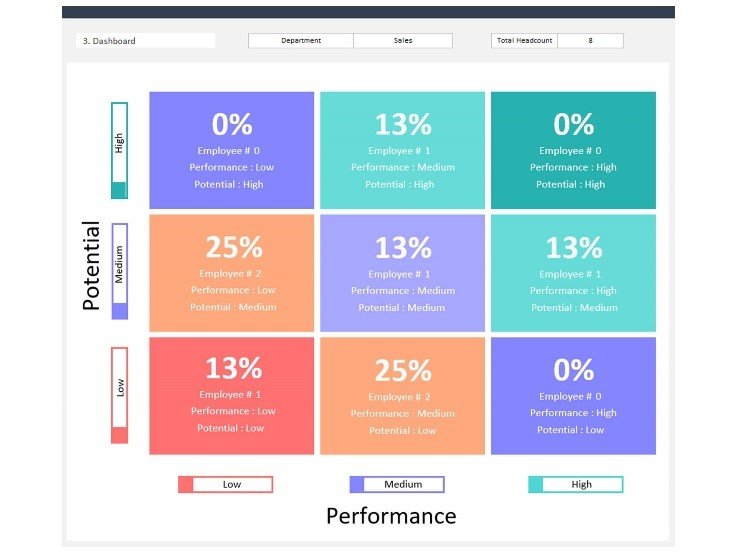Uncovering the Real Cost of Termite Inspections in Gold Coast
In the beautiful Gold Coast, protecting your home from termites isn’t just about maintaining property value—it’s about securing your peace of mind. Termite inspections are crucial in preventing these silent destroyers from causing extensive and costly damage to your home. Understanding the costs involved in termite inspections is vital for making informed decisions that can save you from hefty repair bills in the future. The price of an inspection can vary based on factors such as property size, inspection methods, and the severity of the infestation, all of which we’ll explore in detail.
Making the right choice in termite inspection services means not just focusing on price, but also on the value and thoroughness of the service provided. Larger properties or those with more complex structures may require advanced technologies like thermal imaging, which can influence the cost. Whether you’re a new homeowner or someone experienced with termite challenges, knowing these factors will help you invest wisely in regular inspections and, ultimately, in the long-term protection of your home.
What is the Average Price for Termite Inspection in Gold Coast?
The typical cost of a termite inspection in the Gold Coast ranges between $220 and $350, aligning closely with national averages. Here’s what you can expect within this price range:
- Basic Inspection:
- Cost: $220 to $280
- Inclusions: Visual checks of accessible areas, basic reporting.
- Advanced Inspection:
- Cost: $280 to $350
- Inclusions:
- Thermal Imaging: Detects hidden termite activity by identifying heat patterns.
- Moisture Meters: Finds areas of high moisture that could attract termites.
- Comprehensive Reporting: Detailed findings, including potential problem areas and recommendations for treatment.
Gold Coast homeowners benefit from competitive pricing, ensuring they receive high-quality inspections that include advanced technology. This investment not only protects your property but also ensures you’re getting value for your money.
Factors Affecting Termite Inspection Costs on the Gold Coast
Several key factors influence the cost of termite inspections on the Gold Coast. Understanding these can help you anticipate costs and ensure you get the most thorough inspection for your property.
1. Property Size and Layout
- Larger Properties: Require more time and resources.
- Multi-Level Homes: Additional levels increase inspection complexity.
2. Accessibility of the Property
- Difficult Access Areas: Tight crawl spaces, steep inclines, or roof voids require specialized equipment.
- Additional Time Needed: Hard-to-reach areas increase inspection time and costs.
3. Type of Construction
- Complex Structures: Unusual materials (e.g., concrete slabs, metal frameworks) require different techniques.
- Specialized Tools: Concrete slab homes may need thermal imaging for accurate detection.
4. Severity of Infestation
- Visible Termite Activity: Requires more intensive inspection and advanced tools.
- Increased Time: More thorough checks are needed to assess the extent of damage.
5. Use of Advanced Technology
- Thermal Imaging and Moisture Meters: Enhance detection accuracy but add to the cost.
- Higher Upfront Cost: Justified by the potential to avoid future, more costly damage.
Comparing Termite Inspection Services: Getting the Best Value
When it comes to protecting your home from termites, not all inspection services are created equal. On the Gold Coast, where the threat of termites is particularly high, choosing the right service can mean the difference between a quick check and a comprehensive assessment that safeguards your property for years to come. But how do you know which service offers the best value? Let’s break it down.
1. Detailed Reporting and Analysis
- In-Depth Reports: Some termite inspection services provide detailed reports that go beyond basic findings. These reports often include comprehensive data on the condition of your property, areas of concern, and recommendations for both immediate and long-term actions. The more detailed the report, the more you can trust that every corner of your property has been thoroughly inspected.
- Post-Inspection Consultations: Higher-end services may include consultations where inspectors discuss the findings in detail, helping you understand the severity of any issues and advising on next steps. This personalized approach ensures you’re fully informed about the condition of your home.
2. Expertise and Experience of Inspectors
- Certified Inspectors: The experience and qualifications of the inspector can significantly impact the quality of the service. Certified professionals who have years of experience in the field are more likely to identify subtle signs of termite activity that less experienced inspectors might miss. This expertise doesn’t come cheap, but it offers peace of mind that your inspection is thorough.
- Specialization: Some companies specialize in termite inspections and control, offering a level of expertise that general pest control services might not match. Choosing a specialist can be particularly valuable if your home is at high risk of termite infestation.
3. Use of Advanced Technology
- Thermal Imaging and Moisture Meters: Services that use advanced tools like thermal imaging cameras and moisture meters can detect termite activity that might be hidden from the naked eye. While these technologies can increase the cost of the inspection, they also increase the accuracy and thoroughness, making them a worthy investment.
- Drone Inspections: In cases where properties are large or difficult to access, some services offer drone inspections. This technology allows for a detailed aerial view, ensuring that even hard-to-reach areas are not overlooked.
4. Price vs. Value
- Cost-Effectiveness: While it’s tempting to choose the cheapest option, it’s important to consider what you’re getting for your money. A lower-priced service might only offer a basic visual inspection, which could miss critical issues. On the other hand, paying a bit more for a service that includes detailed reporting, advanced technology, and expert consultations can be a better value in the long run.
- Package Deals: Some companies offer bundled services that include inspection, treatment, and follow-up checks. These packages can provide good value, especially if you need ongoing termite management.
What to Look For in a Termite Inspection Service
- Certifications and Experience: Ensure the company employs certified and experienced inspectors.
- Comprehensive Reporting: Look for services that provide detailed, easy-to-understand reports.
- Advanced Detection Tools: Choose a service that uses thermal imaging, moisture meters, or drones for a thorough inspection.
- Customer Reviews and Reputation: Check reviews and testimonials to gauge the company’s reliability and quality of service.
- Post-Inspection Support: Opt for services that offer consultations or follow-up visits to address any concerns.
By understanding these factors, you can select a termite inspection service that offers the best value for your money, ensuring your property is thoroughly protected from these destructive pests. Remember, investing in a high-quality inspection today can save you from costly repairs tomorrow.
Hidden Costs in Termite Inspections: What You Need to Watch Out For
When scheduling a termite inspection, it’s crucial to be aware that the quoted price might not be the final amount you’ll pay. Hidden costs can creep up, turning what seems like a straightforward service into a more expensive endeavor. To avoid unpleasant surprises, it’s essential to understand where these additional costs might arise and how to prevent them.
1. Re-Inspections
- Additional Fees: If termites are found during the initial inspection, many companies charge for follow-up visits or re-inspections to monitor the situation. While necessary for ensuring the effectiveness of treatment, these costs can add up if you’re not prepared.
- How to Avoid: Ask upfront if re-inspections are included in the initial fee or if they come at an additional cost. Some companies offer packages that include multiple visits, which can be more cost-effective in the long run.
2. Treatment Recommendations
- Potential Upsell: After identifying termites, inspectors might recommend immediate treatments, which often come with a price tag much higher than the inspection itself. While these treatments are sometimes necessary, it’s important to be aware of the potential for upselling.
- How to Avoid: Request a detailed explanation of why a specific treatment is recommended and consider getting a second opinion if the cost seems excessive. Ensure that the initial inspection fee is separate from any treatment costs to avoid being pressured into immediate decisions.
3. Extended Reporting
- Detailed Reports: Some companies offer extended or more comprehensive reports at an additional cost. While a basic report is often included in the inspection fee, a more detailed analysis may require extra payment.
- How to Avoid: Determine in advance whether you need a basic report or a more comprehensive one. If the latter, negotiate the cost upfront to avoid surprise charges.
Tips to Avoid Hidden Costs
- Ask the Right Questions: Before agreeing to an inspection, inquire about what’s included in the quoted price. Specifically ask about re-inspections, detailed reports, and any potential treatment costs.
- Consider All-Inclusive Packages: Some companies offer packages that cover inspections, reports, and even follow-up visits. These can often be more economical than paying for each service separately.
- Get Multiple Quotes: Comparing quotes from several companies can give you a better idea of what to expect and help you avoid overpaying for services.
By understanding where hidden costs might appear, you can take proactive steps to ensure that your termite inspection remains within your budget. A transparent conversation with your pest control provider is key to avoiding unexpected expenses and ensuring you receive the best value for your investment.
Understanding Termite Treatment Costs on the Gold Coast
Transitioning from the cost of termite inspections to the expenses associated with termite treatment is crucial for a comprehensive understanding of how to protect your property on the Gold Coast. While inspections are the first line of defense in identifying an infestation, treatment is the necessary follow-up to eliminate the threat and prevent future damage.
The average cost of termite treatments on the Gold Coast can vary significantly, typically ranging from $2,000 to $4,000. However, this range can extend even further depending on several key factors:
1. Severity of the Infestation
- Mild Infestation: If termites are detected early, the treatment might involve localized methods, such as spot treatments with termiticides. These are less invasive and therefore less expensive, often on the lower end of the price spectrum.
- Severe Infestation: For more extensive infestations, where termites have spread throughout the property, full-scale treatments such as fumigation or the installation of termite barriers may be required. These methods are more costly due to the complexity and thoroughness needed to ensure all termites are eradicated.
2. Treatment Methods
- Chemical Barriers: One common approach is the application of chemical barriers around the property’s perimeter. This method typically involves trenching and drilling to apply termiticides, providing a long-lasting defense. The cost can be higher depending on the size of the property and the amount of termiticide required.
- Baiting Systems: Another method involves setting up baiting systems that attract termites to a poison they carry back to their colony. While effective, this approach can be more expensive due to the ongoing maintenance and monitoring required.
- Fumigation: For severe cases, whole-structure fumigation may be necessary. This is often the most expensive option, but it is also one of the most comprehensive, ensuring that termites are eliminated from every part of the property.
3. Property Size and Structure
- Impact of Size: The size of your property directly influences the cost of treatment. Larger properties require more termiticide or bait stations, and more labor to ensure complete coverage.
- Type of Structure: The construction type of your home also plays a role. Homes with complex layouts, multiple levels, or structures like attached garages may need more intensive treatment, driving up the cost.
Long-Term Savings vs. Immediate Costs
Investing in effective termite treatment might seem costly upfront, but it’s important to weigh these expenses against the potential costs of untreated termite damage. Termites can cause extensive structural damage that may lead to repair bills running into tens of thousands of dollars. By addressing the problem early with a comprehensive treatment plan, you’re not only protecting your property but also potentially saving a significant amount in future repair costs.
When comparing treatment options, consider not just the immediate expense but the long-term value of thorough, effective treatment that prevents further infestations. Remember, the best treatment is one that provides peace of mind by ensuring your home is safe from these destructive pests for years to come.
How to Choose the Right Termite Inspection Service in Gold Coast
Choosing the right termite inspection service is vital for protecting your home. Here’s how to ensure you select a reputable provider:
- Check Credentials: Ensure the inspectors are licensed and certified by relevant authorities like AEPMA. Certified professionals are better equipped to spot subtle signs of termites.
- Understand the Process: Ask about the inspection steps, including the tools used and areas covered. A good service should be transparent and thorough, covering all potential entry points.
- Evaluate Follow-Up Services: Look for services that offer detailed post-inspection reports and follow-up support, especially if termites are found.
- Avoid Low-Cost Operators: Be wary of significantly lower prices, as they may indicate incomplete inspections. Always verify the company’s reputation through reviews.
By following these steps, you can choose a service that ensures your home is well-protected against termites.
Frequently Asked Questions
When it comes to protecting your home from termites, having accurate and detailed information is essential. Below are answers to some of the most common questions about termite inspections and treatments, designed to help you make informed decisions about safeguarding your property.
1. How Often Should Termite Inspections Be Done?
Regular termite inspections should be conducted annually. However, if your property is in a high-risk area or has a history of termite problems, more frequent inspections—every six months—may be advisable. Regular inspections are crucial for early detection and prevention of extensive damage.
2. What is the Most Effective Treatment for Termites?
The most effective termite treatments include chemical barriers and baiting systems. Chemical barriers prevent termites from entering your property by creating a treated zone around the perimeter, while baiting systems attract termites to a toxic bait that they carry back to the colony. Both methods are highly effective when applied correctly by professionals.
3. How Much Does a Termite Inspection Cost?
The cost of a termite inspection on the Gold Coast typically ranges from $220 to $350. This price can vary based on the size of the property, the complexity of the inspection, and whether advanced tools like thermal imaging are used.
4. Are Termite Treatments Covered by Home Insurance?
In most cases, termite damage is not covered by standard home insurance policies. Termites are considered a preventable issue, so insurers expect homeowners to take proactive measures like regular inspections and treatments.
5. What Are the Signs of a Termite Infestation?
Common signs of a termite infestation include mud tubes on exterior walls, hollow-sounding wood, blistering paint, and discarded wings near windows or doors. If you notice any of these signs, it’s crucial to contact a professional for an inspection immediately.
6. Can I Perform a Termite Inspection Myself?
While it’s possible to do a basic visual inspection, professional termite inspections are recommended. Professionals use specialized equipment, such as moisture meters and thermal imaging cameras, to detect termites in hidden areas that are not visible to the naked eye.
7. What Should I Expect During a Termite Inspection?
During a termite inspection, a qualified inspector will thoroughly examine both the interior and exterior of your property, focusing on areas prone to termite activity like the foundation, roof void, and subfloors. The inspector may use advanced tools to detect moisture and heat patterns indicative of termite presence.
8. How Long Does Termite Treatment Last?
The duration of termite treatment effectiveness depends on the method used. Chemical barriers typically last around 5 to 8 years, while baiting systems require ongoing maintenance and monitoring. Regular follow-up inspections are crucial to ensure continued protection.
9. What is the Difference Between Termite Barriers and Baiting Systems?
Termite barriers involve applying a chemical treatment around the perimeter of the property to create a protective zone, whereas baiting systems use strategically placed bait stations that termites consume and carry back to the colony, ultimately eradicating it. Both systems are effective, but they work differently and may be recommended based on the specific situation of your property.
10. Can Termite Damage Be Repaired?
Yes, termite damage can be repaired, but the extent and cost of repairs depend on how severe the infestation is. Early detection through regular inspections can help minimize damage and the associated repair costs.
Conclusion
In wrapping up, it’s clear that regular termite inspections are not just a precaution—they are a vital step in protecting your home from potentially devastating damage. By understanding the factors that influence the cost of inspections and treatments, such as property size, the severity of infestations, and the methods used, you’re better equipped to make informed decisions.
The importance of proactive measures cannot be overstated. Investing in regular inspections and effective treatments today can save you from facing exorbitant repair bills in the future. Termites are relentless, but with the right knowledge and the help of professional services, you can safeguard your home against these silent invaders.
The costs of prevention are minor compared to the significant savings you’ll enjoy by avoiding extensive termite damage. Remember, the best defense is a well-informed and proactive approach, ensuring your property remains safe and secure for years to come.






